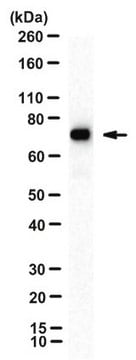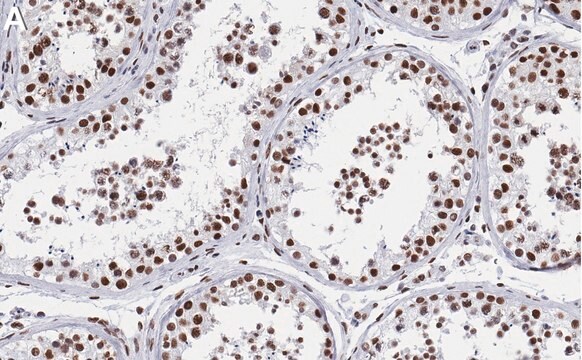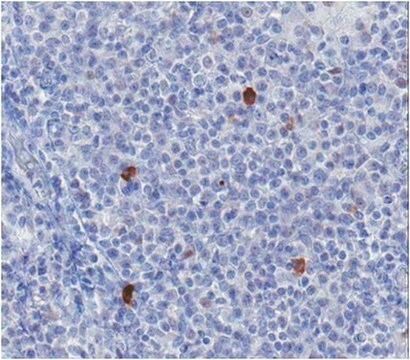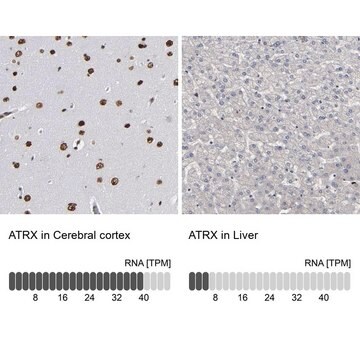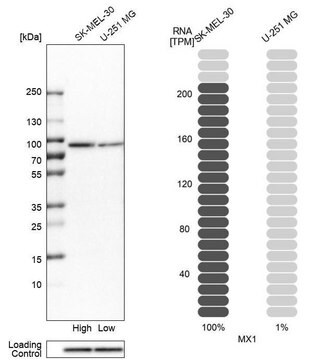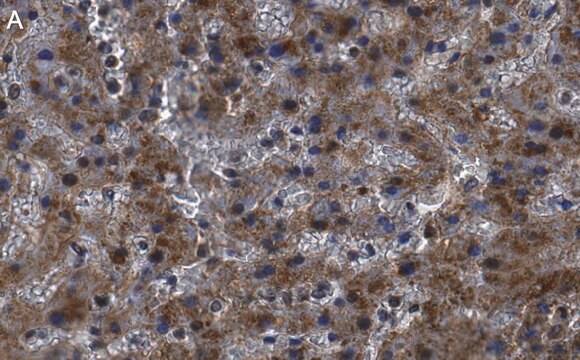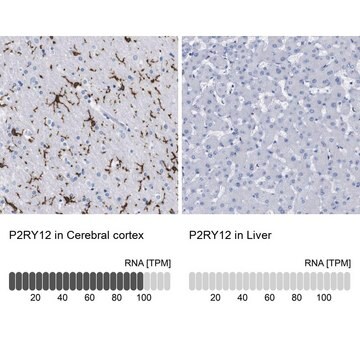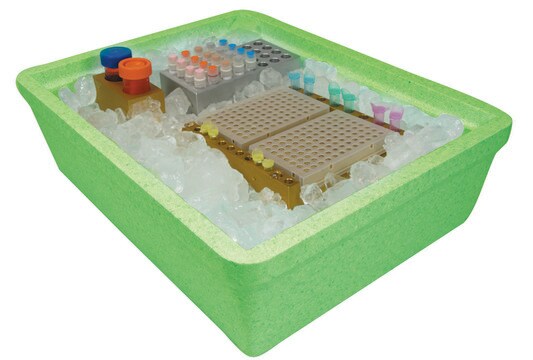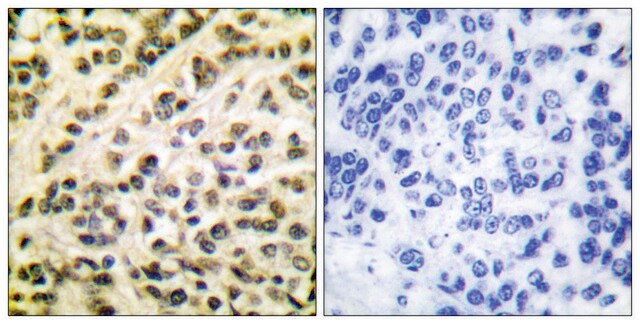ZRB2592
Anti-MX1/MxA Antibody, clone 2C20 ZooMAb® Rabbit Monoclonal

recombinant, expressed in HEK 293 cells
Sinônimo(s):
IFI-78K, Interferon-induced GTP-binding protein Mx1, Interferon-induced protein p78, Interferon-regulated resistance GTP-binding protein MxA, Myxoma resistance protein 1, Myxovirus resistance protein 1
About This Item
IHC
WB
affinity binding assay
immunocytochemistry: suitable
immunohistochemistry: suitable
western blot: suitable
Produtos recomendados
fonte biológica
rabbit
Nível de qualidade
recombinante
expressed in HEK 293 cells
conjugado
unconjugated
forma do anticorpo
purified antibody
tipo de produto de anticorpo
primary antibodies
clone
2C20, recombinant monoclonal
descrição
recombinant, expressed in HEK 293 cells
linha de produto
ZooMAb® learn more
Formulário
lyophilized
peso molecular
calculated mol wt 75.52 kDa
observed mol wt ~76 kDa
purificado por
using Protein A
reatividade de espécies
human
embalagem
antibody small pack of 25
características do produto alternativo mais ecológico
Waste Prevention
Designing Safer Chemicals
Design for Energy Efficiency
Learn more about the Principles of Green Chemistry.
validação aprimorada
recombinant expression
Learn more about Antibody Enhanced Validation
técnica(s)
affinity binding assay: suitable
immunocytochemistry: suitable
immunohistochemistry: suitable
western blot: suitable
Isotipo
IgG
sequência de epítopo
C-terminal
nº de adesão de ID de proteína
nº de adesão UniProt
categoria alternativa mais ecológica
Condições de expedição
ambient
temperatura de armazenamento
2-8°C
Informações sobre genes
human ... MX1(4599)
Descrição geral
Especificidade
Imunogênio
Aplicação
Evaluated by Western Blotting in HeLa cell lysate.
Western Blotting Analysis: A 1:10,000 dilution of this antibody detected MX1/MxA in HeLa cell lysate.
Tested Applications
Western Blotting Analysis: A 1:10,000 dilution from a representative lot detected MX1/MxA in lysates from A549 cells and 1:1,000 dilution in Human thymus tissue.
Immunohistochemistry (Paraffin) Analysis: A 1:100 dilution from a representative lot detected MX1/MxA in Human thymus tissue sections.
Immunocytochemistry Analysis: A 1:100 dilution from a representative lot detected MX1/MxA in A549 cells.
Affinity Binding Assay: A representative lot of this antibody bound MX1/MxA peptide with a KD of 1.2 x 10-8 in an affinity binding assay.
Note: Actual optimal working dilutions must be determined by end user as specimens, and experimental conditions may vary with the end user.
Descrição-alvo
forma física
Reconstituição
Armazenamento e estabilidade
Informações legais
Exoneração de responsabilidade
Não está encontrando o produto certo?
Experimente o nosso Ferramenta de seleção de produtos.
Código de classe de armazenamento
11 - Combustible Solids
Classe de risco de água (WGK)
WGK 1
Ponto de fulgor (°F)
Not applicable
Ponto de fulgor (°C)
Not applicable
Escolha uma das versões mais recentes:
Certificados de análise (COA)
Lamentamos, não temos COA para este produto disponíveis online no momento.
Se precisar de ajuda, entre em contato Atendimento ao cliente
Já possui este produto?
Encontre a documentação dos produtos que você adquiriu recentemente na biblioteca de documentos.
Nossa equipe de cientistas tem experiência em todas as áreas de pesquisa, incluindo Life Sciences, ciência de materiais, síntese química, cromatografia, química analítica e muitas outras.
Entre em contato com a assistência técnica